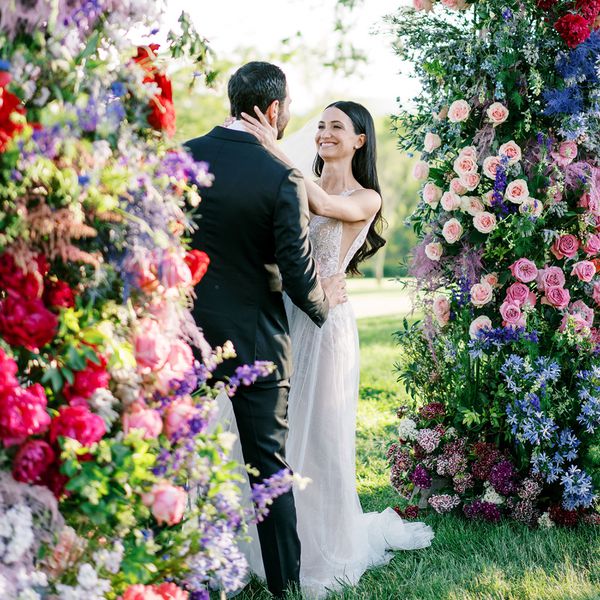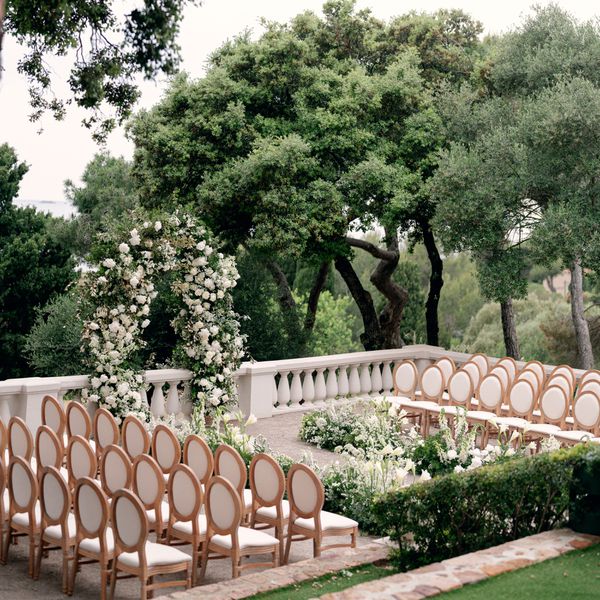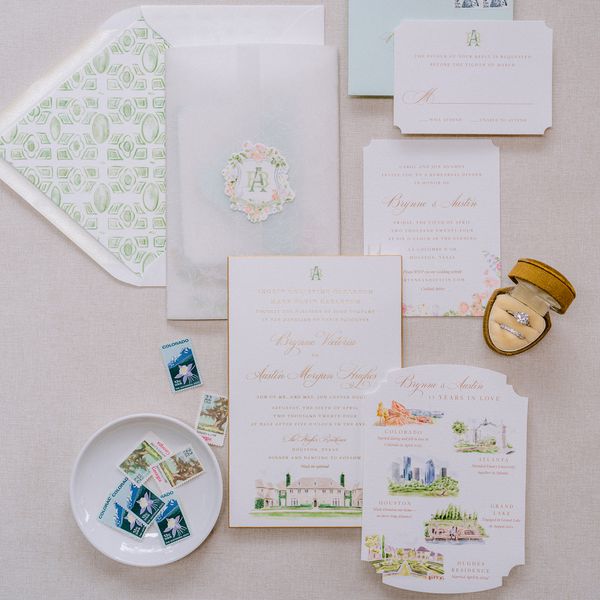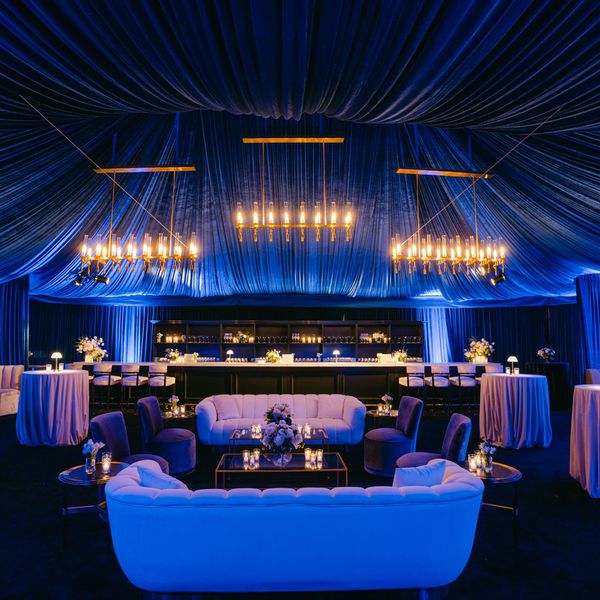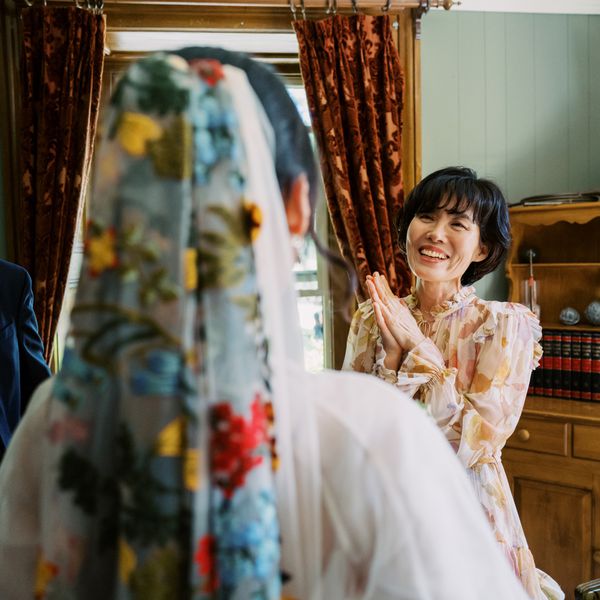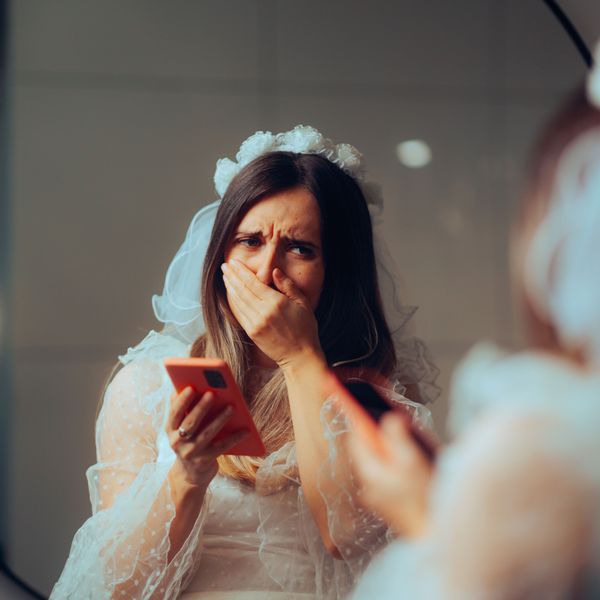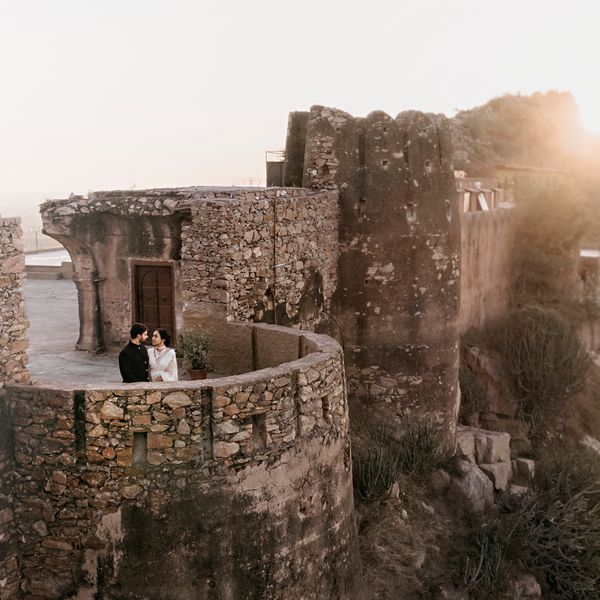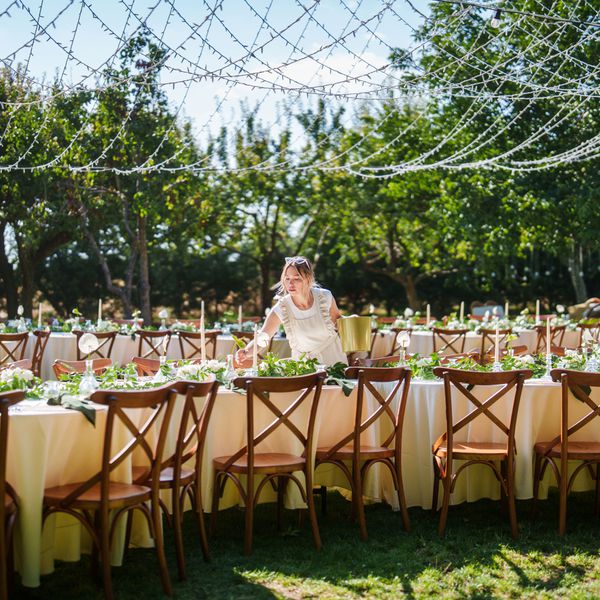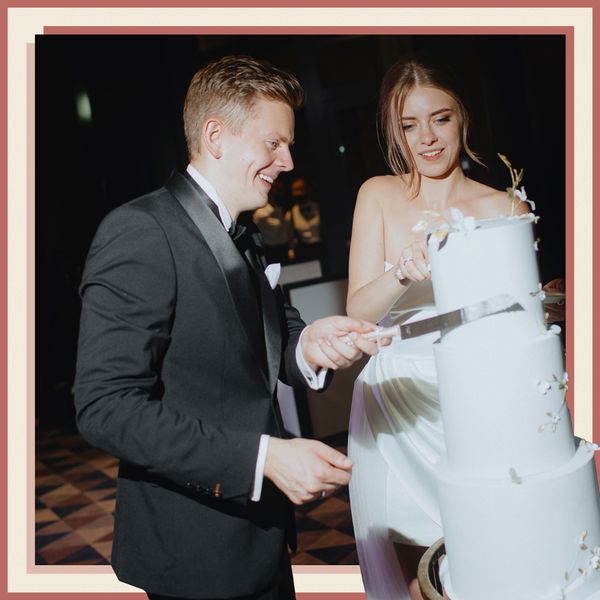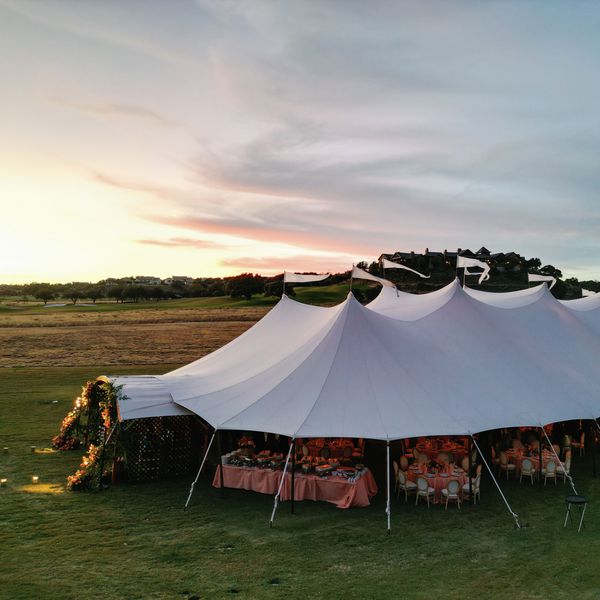:max_bytes(150000):strip_icc()/Main-Wedding-Planning-Questions-Michellia-Fine-Imagerycopy-db3b902cc3c545d2993f985b102f8595.jpg)
Photo by Michellia Fine Imagery
Planning a wedding can be a lot of work. Between securing a venue, figuring out the menu, the flowers, the music, and the photographer, dealing with last-minute hiccups, and making sure everyone has RSVPed, there's a fair amount to get done when preparing to say "I do." That's why it's recommended that couples hire a wedding planner once it's time to organize their dream day. But here's the catch: You can't just blindly hire the first planner you find on Google—and it's highly encouraged that you interview prospective planners before making things official.
“Connecting with your potential planner on a deeper level is essential—they'll be integral to one of the most important days of your life!” shares Jennifer Allen, wedding specialist and founder of Just Elope. “Ensuring they grasp your vision, have the expertise to execute it flawlessly, and that you both vibe well together is crucial. A strong personal connection is just as vital as their professional chops.” Cameron Forbes, event planner and founder of Forbes Functions, also adds that asking your planner specific questions during the interview process will help ensure "that you choose an experienced, trustworthy wedding planner aligned with your vision. Building a strong connection with your planner and starting the process early makes for a smoother, more enjoyable wedding planning experience for all parties!”
Meet the Expert
- Cameron Forbes is the founder of Forbes Functions, a boutique event planning company in New York City and the Hamptons.
- Emily Coyne is a wedding planner and founder of Emily Coyne Events in Napa, California.
- Jennifer Allen is the CEO and founder of Just Elope, a wedding planning company that specializes in micro-weddings.
- Jamie Wolfer is the founder of Wolfer & Co., a wedding-planning collective.
- Andrea Petrucci is the founder and creative director of Lovehaus Events, a full-service planning company in Philadelphia.
- Cindy Savage is a wedding planner, officiant, and founder of the LGBTQ+ wedding planning company Aisle Less Traveled in Seattle.
Below, take note of 35 questions you should ask all potential wedding planners before hiring them, including a variety of queries about their experience, planning process, pricing, and day-of duties.
:max_bytes(150000):strip_icc()/10-pastel-purple-garden-wedding-ceremony-altar-decor-michellia-fine-imagery-0524-fb2e2851ddde4b479343f5cd687bf6ee.jpg)
Photo by Michellia Fine Imagery
Essential Wedding Planner Questions
Here are the questions you should always ask when interviewing wedding planners for your big day.
Are you available on my wedding date?
This is the most important question to ask. If you have your date nailed down, make sure the planner can physically be present on that day or find someone else.
What type of services do you offer? (e.g. month-of coordination, full planning, or partial planning)
Wedding planning isn’t a one-size-fits-all job. Some planners do it all, while others only handle the basics. Knowing the full scope of what they do and how it compares to your wedding needs will help you find a perfect match. “What exactly do they do? Do they handle just the day-of coordination, or do they get involved from the planning stages to the final dance? This helps set clear expectations,” shares Jamie Wolfer, founder of the event planning company Wolfer & Co.
How long have you been a wedding planner?
The longer they’ve been in the business, the more experience they have. There’s no harm in working with someone with less experience, but if you tend to get stressed out, it may be a good idea to work with a seasoned pro who has been through it all.
How many weddings will you be working on during my preferred date?
While it’s typical for a planner to work on a few weddings at the same time, you don’t want someone so overextended that they can’t devote adequate time to your nuptials. “Ask how many weddings they take on each year and how many hours of time they devote to each wedding,” advises wedding planner Emily Coyne. “Since there is no barrier to entry in becoming a wedding planner, you'll find ‘full-service’ planning to mean different things to different planners.”
Coyne continues: “One planner may devote only 50 hours to a full-service client because they are handling 30 weddings per year, and another may spend 500+ hours on each client and handle only half a dozen weddings per year."
Experience and Expertise Wedding Planner Questions
These questions will give you a better understanding of a wedding planner's skill level and professional expertise.
How many weddings have you planned?
To get the full breadth of a planner's experience, it's helpful to know how long they've been in business and how many weddings they’ve planned. “I think it's important to ask both sides of this question because a planner who's been around for 10 years doing one or two weddings per year has a very different amount of experience than a planner who's been around for five years doing 20 weddings per year,” explains Cindy Savage, founder of the wedding planning company Aisle Less Traveled. “In general, you can consider a planner experienced after about 50 weddings and an expert after about 100.”
Have you worked at my preferred venue before?
“If a planner has experience with your specific type of wedding—backyard, micro wedding, cultural, themed, destination—and knows your venue, they can better anticipate challenges and particular needs,” shares Forbes. “This means they can offer tailored advice, foresee logistical issues, and meet all cultural or specific requirements.”
What are your company values and how do they set you apart from other planners?
Each planner you speak with should have a clear mission statement and be able to share their values with you; this is particularly important for couples who value inclusivity. “Although it's 2024 and marriage equality has been the law across the US for nearly a decade, LGBTQ+ couples still face discrimination in the wedding industry, including many vendors continuing to refuse to work with them. It can be devastating and tedious to have to come out to every potential vendor and hope to be accepted or seen as worthy to get married,” says Savage. “Hiring an inclusive wedding planner can erase that stigma because we will do all of the coming out for our couples, as well as all of the vetting to make sure that any vendor we recommend will be nothing short of enthusiastically supportive of their relationship and their wedding."
For straight couples with LGBTQ+ guests, an inclusive planner will ensure everyone has a great time at the wedding, whether that’s with dress codes for the wedding party, all-gender restrooms, skipping gendered traditions like the garter toss, and ensuring vendors are using all sets of pronouns, Savage adds.
Do you plan destination weddings (if applicable)?
Some planners will be thrilled to plan a destination wedding, while it can be an out-of-scope request for others. If you want to get married in Italy or Mexico, make sure it’s one of the first questions you ask.
How many people are on your staff? How many will be dedicated to my wedding?
Does your planner fly solo or do they have a full staff working on events? Get a general idea of their team and who you’ll be working with on a regular basis, as well as an idea of who will be onsite on your wedding day. “Weddings have a lot of moving parts—often have multiple locations or multiple areas within the same venue—and it's damn near impossible to truly have a handle on everything with just one planner,” shares Savage. “Having a team that's been with them for multiple seasons means their team is likely to be well-trained to manage your wedding in the same way that they would themselves.”
Are there any wedding ideas you're not willing to execute?
Some planners have rules around what kind of weddings they’ll do. It’s good to get an idea of what’s in their scope so you’re not disappointed when they decline your idea.
Photo by Jenn Emerling
Process and Timeline Wedding Planner Questions
Ask these queries to get a better idea of how your prospective planner likes to work, and if that aligns with how you personally manage tasks.
Can you walk me through your planning process?
“Every couple wants their wedding day to run smoothly, so taking the time to learn about a planner's experience and process is massively important to getting that end result,” explains Savage. This will help you feel more confident about their ability to handle whatever gets thrown their way.
What is your typical timeline for planning a wedding?
According to Allen, couples should start interviewing wedding planners about 10 to 15 months before the big day. This allows them "to fully understand your vision, suggest venues and vendors, handle contracts and logistics, and keep everything on track and organized," she explains. It'll also allow them to put together a comprehensive timeline of when everything needs to get done before you and your partner walk down the aisle.
When will you need decisions from me on various aspects of the wedding?
It’s also important to know what your planner expects of you, especially when it comes to the all-important deadlines.
Will you handle invitations, guest list coordination, and RSVPs?
Some couples prefer to handle this on their own, while others prefer to hand it off to their planner so they don’t have to chase down RSVPs. If this isn’t something you want to deal with, ask!
Do you coordinate vendor delivery and setup, including arrival and pick-up times?
This is a big one, especially if you’re juggling a lot of different vendors. While this typically falls within a planner’s list of duties, make sure to ask in advance to ensure you’re not caught off guard later.
Pricing, Budget, and Contract Wedding Planner Questions
These questions will ensure you have a clear idea of all financial obligations upfront.
What is your pricing structure?
Weddings are expensive, so make sure you’re aware of your wedding planner's pricing structure before you begin to work with them.
Are there any additional fees I should be aware of?
To avoid being shocked by the final bill, ask about all potential fees when interviewing a wedding planner; it’s also important to know what is not included in their package pricing. “Know the limitations upfront to avoid surprises,” advises Allen.
Can you provide a detailed contract outlining all the services and costs?
Ensure you get everything in writing. Even if you like and trust the planner, you’ll want to have everything listed out so there are no surprises on or after the big day.
What is the average budget for the clientele you service?
Some planners may exclusively work with big-ticket clients and specialize in luxury events. If that’s not exactly your vision—or your budget—it’s probably not a match. Get a rough estimate of their typical wedding budget and make sure you’re aligned.
Can you work within our budget?
Budget is one of the biggest priorities when wedding planning, so you’ll want a planner who can work within the parameters you’ve set and what you can afford. “Understanding their approach to cost control, including how they track expenses, suggest cost-saving measures, and handle unexpected costs, is critical to staying within your financial limits while making your vision a reality,” says Forbes.
“You may not need to ask this if you're only hiring a planner to manage your wedding day, but if you'll be looking to your planner for vendor recommendations or hiring full-service, this is a must-ask question!” adds Savage. “Often a planner's go-to vendors fall into a fairly narrow band of pricing. Getting alignment here is your best chance for sticking to your budget.”
Do you carry personal liability and professional indemnity insurance?
It’s good to be prepared, especially with big weddings where anything and everything could happen.
:max_bytes(150000):strip_icc()/MollyRyanDetails_Selects080-225a65893469488bae477f157dd84e41.jpg)
PHOTO BY KRISTEN MARIE PARKER
Vendor Recommendation Wedding Planner Questions
Here, we list a few questions to help you get a general idea of the vendors your planner typically likes to use.
Do you have a preferred list of vendors?
Many planners will have a list of vendors they’ve worked with in the past and trust for wedding needs, so ask them about it. “Who do they like to work with, and why? What criteria do they use? How long have they worked with their preferred vendors, and what sort of feedback have they received from previous clients about these vendors?” explains Wolfer. “Understanding their selection process will help you gauge the consistency and quality of your wedding day team.”
“Understanding how a planner chooses and recommends vendors can give you insight into their network and the quality of professionals you will be working with,” adds Petrucci. “It shows their commitment to matching you with vendors that fit your style, budget, and vision, which is essential for creating a cohesive and personalized wedding experience.”
Can I choose my own vendors, or am I limited to your reccomendations?
You may already have a florist, catering company, or DJ in mind. Be sure you’re clear about this before you sign anything, as some planners require you to work with their personal connections.
Do you receive any commissions or kickbacks from vendors?
Some planners may receive a commission for referring a vendor, which is fine—as long as you’re aware of it. “Transparency is key,” says Allen. “Understand any potential conflicts of interest by asking about commissions or discounts from recommended vendors.”
Do you communicate directly with vendors or do I have those conversations?
Be sure you’re on the same page with how to handle vendors both during the planning process and on your wedding day. “Confirm if they'll attend vendor meetings, create timelines and schedules, and manage vendor payments and tips on the wedding day,” says Allen.
Communication and Availability Wedding Planner Questions
Communication is key when planning a wedding, so ask these questions to ensure you and your planner are always on the same page.
How often will we communicate during the planning process?
A good planner should be readily available for your questions, but be sure you’re on the same page about their bandwidth and boundaries. “Most planners offer unlimited communication, which means you can ask us all of your questions instead of scouring the internet,” shares Savage. “Some of us will even review your vendor proposals and contracts before you book them, which can prevent a lot of problems as well as unnecessary spending down the line.”
What is your preferred method of communication?
Text? Phone? Email? Zoom? Get the details upfront. “It’s crucial to know not just how often they will update you, but also their preferred methods of communication. Do they rely on emails, phone calls, or a professional planning platform?” advises Wolfer. Also, ask about their turnaround time. “How quickly do they respond to inquiries or issues? This is key to ensuring you're on the same page throughout the planning process, and setting these expectations early on will help in maintaining a smooth and transparent relationship.”
How many meetings will we need to have?
Make sure you’re clear on how often you’ll need to meet and whether it’s in-person, via phone, or virtually, as well as the process for less formal check-ins.
Photo by Ryan Ray
Contingency Plans and Problem-Solving Wedding Planner Questions
Life is unpredictable, so it's important to hire a wedding professional who's quick on their feet and can easily problem-solve when things get tricky.
How do you handle unexpected issues or wedding-day emergencies?
Thunderstorms. A sick caterer. The wrong flowers. So many little things can go wrong on the big day, so make sure your planner can handle it and find a solution. “Many unforeseen issues can impact weddings, from weather disruptions to vendor cancellations,” says Forbes. “A seasoned planner should have solid contingency plans in place to handle such situations, ensuring your day runs smoothly despite any potential hiccups.”
Do you have backup plans in case of vendor cancellations?
It happens, but it doesn’t have to derail the entire wedding. Your planner should have a plan in place for any last-minute cancellations. “Their problem-solving skills are crucial. Ask how they tackle hiccups to ensure your day runs smoothly,” shares Allen.
Can you provide examples of how you have resolved problems in the past?
“Remember, one of the key things you're hiring a planner for is logistics and production,” says Coyne. “Planners are there to ensure proper planning and execution. Understanding their depth of experience and how adept they are at navigating problems is key.”
“Asking about past conflicts or tricky situations reveals a lot about a planner’s professionalism and grace under pressure,” adds Petrucci. “It’s important because it shows how they handle stress and keep things on track, even when the going gets tough. Understanding their approach to resolving issues can give you confidence in their ability to support you through any challenges that may arise.”
What happens if you're sick on the day of the wedding?
In the event your planner absolutely cannot be present on your wedding day, due to illness or injury, how will they handle said situation? “Your wedding is a very important day that can't be rescheduled or re-done, so you want to be sure that your planner has a backup plan if something happens to them,” says Savage.
Reference and Testimonial Wedding Planner Questions
Just like a job interview, getting real-life references from former clients can help you better understand the planner’s performance and reliability.
Can you provide reference for past clients?
According to Forbes, “Hearing from past clients about their experiences can reveal how professional the planner is, how well they handle stress, their creativity, their working and communication styles, and how they manage unexpected issues.” Coyne adds, “[Asking for] references not only about personality, but about response times, how much the planner kept them informed or on track with their budget, and how much they enjoyed or felt stress during the planning process."
Do you have any testimonials or reviews I can read?
Many planners will share testimonials and reviews on their website, but don’t be afraid to ask for more.
Can I see photos of past weddings you've planned that align with my desired vision?
The design of your wedding sets the tone for the entire celebration, says Andrea Petrucci, founder of Lovehaus Events. You’ll want to get familiar with your wedding planner’s approach to design to make sure you’re a good fit. “It’s crucial to know if they can bring your aesthetic ideas to life and how they adapt their designs to different venues and themes,” she says.
